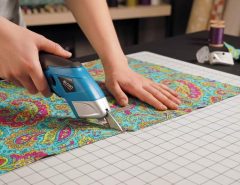Installing a TV aerial in the loft can be a practical alternative to mounting it externally. Whether due to aesthetic considerations or building restrictions, this option can work well in many situations. However, there are important factors to consider before deciding if a loft installation is suitable for your needs.
Factors Affecting Loft Aerial Installation
One of the main challenges of loft aerial installation is signal strength. Loft spaces often have obstacles like thick walls, roof materials or nearby trees that can weaken the signal. Additionally, if your loft features foil insulation, the reflective material can block signals entirely, rendering this option ineffective.
To maximise performance, it’s crucial to find the strongest signal spot within the loft. This process may involve trial and error, as signal strength can vary significantly in different areas. For particularly weak signals, using an amplifier can help boost reception. Some modern aerial designs, such as log periodic aerials or those with integrated baluns, are also better suited to overcoming interference commonly found in loft spaces.
Benefits and Limitations
Installing an aerial in the loft offers certain advantages, such as protecting it from the elements and maintaining the external appearance of your property. However, it’s essential to weigh these benefits against potential limitations. A loft aerial is less likely to achieve the same performance as one installed outside, especially in areas with already weak reception. For guidance on selecting the right aerial, resources like the BBC’s aerial help guide offer useful advice.
If signal issues persist, a local professional service can help assess your options. If you’re looking for a TV aerial repair Cheltenham, for example, companies like Steve Unett Aerials can provide advice and practical solutions, whether it’s optimising the loft setup or recommending an alternative location.
In summary, while loft aerials can work effectively under the right conditions, they require careful planning and may involve compromises in signal quality. For optimal results, consulting an expert ensures that the best solution for reliable TV reception is tailor-made to suit the needs of your home.




Leave a Reply